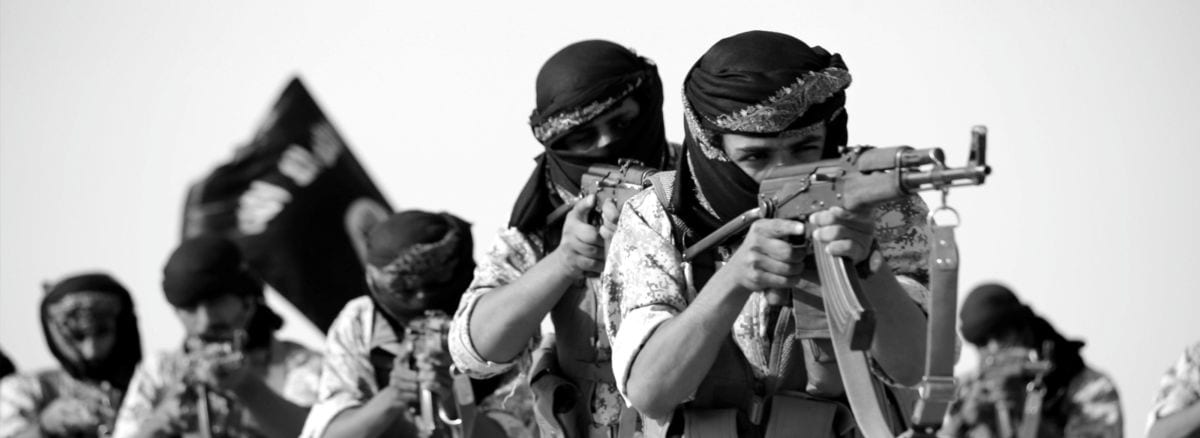Habibah H. Hermanadi – Research Intern at ASEAN Studies Center UGM
2016 begun with yet another terrorist attack to one of the ASEAN member states, Indonesia, the attempt of suicide bomb in Jakarta backed up by the currently emerging terrorist group Daesh surprisingly resulting in the famous #kamitidaktakut internet sensation which means we are not afraid, a sense of solidarity among Indonesians to resist the terror. Daesh or known as Islamic State (IS) is currently expanding their influence beyond Middle East and North Africa towards Asian regions with strong ideological roots fighting for the return of Islamic Caliphate. Their attacks went continuously in 2016 throughout Europe and Asia, the group is known for spreading terror and grievance by utilizing these attacks and propaganda. One of the most viral propagandas was recently uploaded in youtube—a video based social media depicting dozen of young Indonesian and Malaysian children who were armed and told to ‘liberate’ their homelands.
Another notorious terrorist group which identifies itself as Abu Sayyaf, located in Philippines, has been causing distress in the Southeast Asia region since 2004, the group spreads regional terror after the very recent case where the group kidnapped 7 Indonesian sailors last month and now 5 more Malaysian fishermen were abducted around Sulu, Philippines. The group had shown extreme gruesome hostility towards the government by sending visual threats through the act of beheading, it was considered as obscenely brutal way when it is not done in one fell swoop of a sword, but with slashes and hacks from a hunting knife.
On the 36th ASEANPOL Conference, Malaysian Prime Minister Datuk Seri Najib Razak stated the importance of unity to fight off terror, in his speech he clearly mentioned “Daesh and its cruel, twisted ideology have no place in our peaceful, diverse, tolerant country and nor in our region,” he also condemned Abu Sayyaf and their recent abduction. The Prime Minister put on emphasis on the role of stronger ASEAN by taking example of Malaysia who had adapted the Security Offences (Special Measures) Act or Sosma; the Special Measures against Terrorism in Foreign Countries Act; the Prevention of Terrorism Act and the National Security Council, by implying these strong counterterrorism measure within Malaysia he had been facing many critics which questioned the government’s intentions yet he was unapologetic for the action that he took when it comes to the safety of the citizens. Similar reaction was shown by the newly elected President of the Philippines, Rodrigo Duterte, where he appointed the military to enhance the capability to search and engage the rogue and lawless elements, in his words, “the Armed Forces of the Philippines will be applied to crush these criminals who operate under the guise of religious fervor.”
The strong remark on the conference was dearly welcomed by the Russian federation whereas Moscow offered joint measures to diminish the number of militants arriving from Daesh, The idea was in line with Prime Minister Najib Razak mentioned, Russia will work together with ASEAN through mechanisms of our partnership, namely informal meetings of ASEAN defense ministers and talks of senior officials and sessions of the working group on counteracting terrorism and transnational crime. However on the foreign ministers meeting collaboration between ASEAN-United States was drawn, according to deputy’s spokesperson Mark Toner the detail of collaboration would be focusing on specific actions to combat illegal, unreported, and unregulated (IUU) fishing, and ASEAN-US pledged their commitment to strengthen cooperation against terrorism and violent extremism.
The two initiations by the two influential countries exactly portray the dynamics of security in Southeast Asia, in one side as terrorist groups had been advancing themselves and connectivity among nations became vital in the context of tracking these groups down, yet in the other side the region has always been known as a strategic region, desirable by many for further security collaborations allowing flow of external parties from United States and Russia questioning the 1971 Zone of Peace, Freedom and Neutrality declaration which was created to assure that there will be no interference coming from outside powers. Razak and Duterte had been very vocal in showing their firm actions against these terrorist groups and suggesting others to tighten their military involvement in counterterrorism. Through these strong reactions ASEAN is given an opportunity to think about what Center for Strategic and International Studies, Rizal Sukma, mentioned in 2015 that ASEAN is not a security community, but rather a a security regime; without violating the sacred principle of non-interference. Will the current face of terror reformed the status quo driving ASEAN closer towards its ‘security community’ and ‘common internal enemy’ concept voiced by Professor Amitav Acharya in 1991? Either way the answer lies among the member states and whether or not they will concur.

